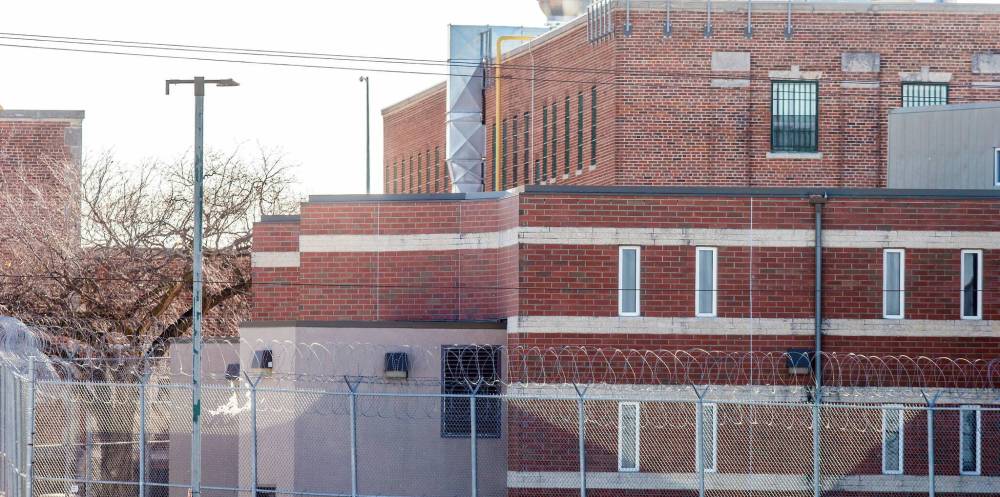The father of a Headingley jail inmate who strangled himself in his cell is suing the Manitoba government for not protecting him.
Jeffrey Owen Tait, 31, was found unresponsive on the floor of a segregation unit Jan. 29, 2019. A piece of fabric was wrapped around his neck. Staff and paramedics were unable to revive him.
Tait had been let out of a 23-day stint in segregation, commonly referred to as solitary confinement, the day before his death. He was put back in solitary at his own request after staff said he could not smudge himself, by burning sage, because it was too cold outside. It was policy to prevent inmates from going outside when the temperature dipped below -32 C.

MIKAELA MACKENZIE / FREE PRESS FILES
The father of an inmate at Headingley Correctional Centre who strangled himself in his cell is suing the Manitoba government for not protecting him.
Provincial court Judge Stacy Cawley, who presided over a 2022 inquest into his death, found that his mental health had declined while he was in solitary confinement.
Lawyers Jason Harvey and Sadira Garfinkel filed a lawsuit on behalf of Tait’s father, Eugene Marvin Tait, in Court of King’s Bench this week.
It seeks damages, including $4,950 in funeral expenses, and alleges jail staff failed in their duty to ensure Tait’s safety and well-being, which resulted in his death.
The province has yet to respond to the lawsuit in court.
The Tait family alleges the government and Headingley jail staff breached their duty of care by failing to implement or follow reasonable safety policies and failing to properly assess his mental state, including whether he was a risk to himself.
The suit also alleges staff failed to monitor him on the day of his death; allowed the video surveillance camera to his cell to be blocked for several hours; failed to watch the surveillance camera; and failed to recognize he was in need of medical help or that he fell unconscious.
“The plaintiff states that as a result of the defendant’s and/or (jail) staff’s breaches… Jeffrey, who was or ought to have been a known risk of self-harm, was left unmonitored for a prolonged period of time,” reads the court filing.
“The plaintiff further alleges that it was, or ought to have been, reasonably foreseeable that an inmate who was placed in (solitary) for the purpose of constant monitoring but was left unmonitored… could take steps to injure or otherwise harm themselves.”
The claim argues the government’s actions were “high-handed” and “callous” and showed a “flagrant disregard of its obligations.”
Tait had been assessed by a doctor at the jail one day before his death. He was prescribed medication for symptoms of mild psychosis, but Tait refused to take the medication.
Shortly after he was put in a segregation cell on the morning of Jan. 29, Tait placed wet toilet paper over the lens of a security camera in the cell. He was given a meal at 3:29 p.m. and was observed slumped over shortly afterward.
Staff who checked on him at 4:11 and 4:29 p.m. did not notice he was unresponsive, the claim alleges. Staff discovered him unresponsive at 4:48 p.m. and he was pronounced dead by 5:15 p.m.
Earlier that month, Tait had said he was hearing voices and had a violent outburst in a cell while at the jail in Dauphin, before he was transferred to Headingley.
Tait had been kept in segregation for about 38 of the 88 days he was incarcerated. Tait had been admitted to the Winnipeg Remand Centre on Nov. 3, 2018.
The judge who oversaw the inquest recommended the Manitoba government hire a third party to review the use of segregation in provincial jails in her 2023 report.
The practice is widely used in Manitoba jails, as per other civil court filings and Headingley jail documents recently reviewed by the Free Press.
The United Nations has deemed solitary confinement of 15 days or more as a form of torture.
erik.pindera@freepress.mb.ca

Erik Pindera
Reporter
Erik Pindera is a reporter for the Free Press, mostly focusing on crime and justice. The born-and-bred Winnipegger attended Red River College Polytechnic, wrote for the community newspaper in Kenora, Ont. and reported on television and radio in Winnipeg before joining the Free Press in 2020. Read more about Erik.
Every piece of reporting Erik produces is reviewed by an editing team before it is posted online or published in print — part of the Free Press‘s tradition, since 1872, of producing reliable independent journalism. Read more about Free Press’s history and mandate, and learn how our newsroom operates.
Our newsroom depends on a growing audience of readers to power our journalism. If you are not a paid reader, please consider becoming a subscriber.
Our newsroom depends on its audience of readers to power our journalism. Thank you for your support.